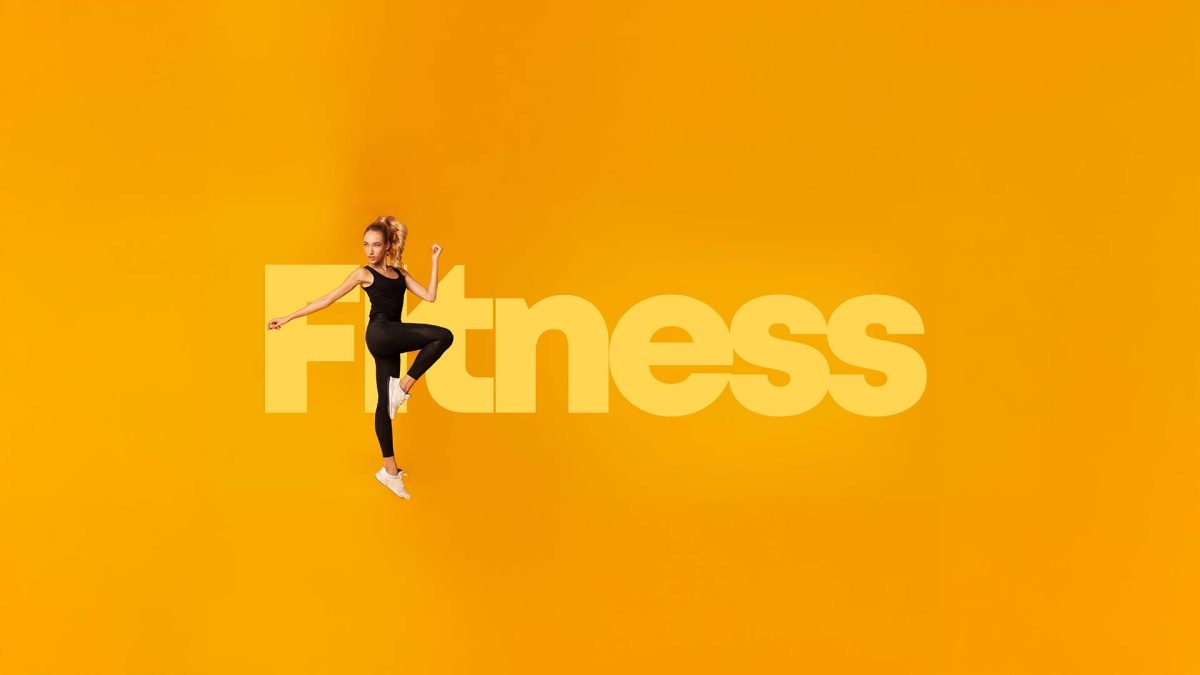Ready to transform your fitness journey? Fitness challenges are your secret weapon for staying motivated and building lasting healthy habits. These structured programs combine clear goals, daily actions, and community support to help you achieve real results.
Research shows that participating in fitness challenges can boost your workout consistency by up to 40% according to WellHub. That's because challenges tap into our natural drive for achievement and social connection.
The most effective challenges follow a simple formula: specific goals + measurable progress + accountability. For example, a 30-day plank challenge starts with 20 seconds and gradually builds to 5 minutes, giving you clear targets to hit each day. This progressive approach helps prevent burnout while keeping you engaged.
Want to maximize your success? Choose challenges that match your current fitness level and schedule. A beginner might start with a daily steps challenge, while someone more advanced could tackle a push-up progression program. Race at Your Pace found that participants who select appropriate difficulty levels are 3x more likely to complete their challenges.
The best part? You don't need fancy equipment or a gym membership. Many effective challenges use just your body weight or simple tools like resistance bands. Fitness on Demand reports that home-based challenges have completion rates similar to gym-based ones.
Remember, the goal isn't perfection – it's progress. Start with a 7-day challenge to build confidence, then work your way up to longer commitments. Track your journey, celebrate small wins, and connect with others for support. Your fitness transformation starts with that first challenge!
Understanding Fitness Challenges
Fitness challenges are structured programs that help you reach specific health goals within a set timeframe. Think of them as your personal game plan for getting stronger, healthier, and more active. Research shows that having a clear target can boost your motivation by up to 90% compared to working out without specific goals (Race at Your Pace).
The magic of these challenges lies in their ability to create lasting habits. While the popular 21-day habit formation myth has been debunked, studies show it actually takes about 66 days to form a solid habit. A 30-day challenge gives you the perfect jumpstart to build that foundation.
What makes these challenges work so well? It's all about the perfect mix of structure and flexibility. You get daily targets to hit, but you can usually tackle them on your own schedule. Plus, many challenges come with built-in rest days to prevent burnout and keep you going strong.
The science backs this up too. According to fitness psychology research, having specific, measurable goals increases your chances of sticking to an exercise routine by 42%. When you combine this with the social support many challenges offer, your success rate climbs even higher.
Remember, these aren't just random workout plans. The best challenges follow a progressive pattern, starting at a manageable level and gradually increasing intensity. This smart design helps your body adapt while keeping you motivated through consistent wins.
Want to make your challenge even more effective? Track your progress daily. Studies show that people who monitor their exercise efforts are 33% more likely to reach their fitness goals. Whether you use a simple notebook or a fancy fitness app, keeping tabs on your journey helps you stay focused and celebrate your improvements.
Popular Types of Fitness Challenges
Ready to shake up your fitness routine? Let's explore some exciting challenges that can transform your workout journey. Step challenges are perfect for beginners - aim for 10,000 daily steps and gradually increase your goal. According to Fitness on Demand, participants who start with step challenges are 63% more likely to stick to their fitness goals.
Want to build strength? Try the 30-day plank challenge. Start with 20 seconds and work up to a solid 3-minute hold. Push-up challenges are another fantastic option - begin with 5 daily push-ups and add one each day. These progressive challenges help prevent burnout while building impressive upper body strength.
Looking for something more intense? High-intensity challenges like the burpee challenge can torch calories fast. Start with 10 burpees daily and increase by 2 each day. Squat challenges are equally effective - aim for 50 squats daily for 30 days to build lower body power.
Don't forget about flexibility! A 30-day yoga challenge can improve your range of motion and reduce stress. Start with 10 minutes daily and gradually extend your practice. Simple stretching challenges, like touching your toes for 1 minute daily, can make a huge difference in your overall mobility.
Mix and match these challenges based on your goals. Remember, the best challenge is one you'll actually complete. Choose something that excites you and fits your current fitness level. Track your progress, celebrate small wins, and watch your strength and endurance soar!
Virtual vs In-Person Challenges
Virtual fitness challenges have revolutionized how we approach group fitness. Research from WellHub shows that virtual challenges can match or exceed the effectiveness of traditional in-person events.
Virtual challenges offer unmatched flexibility. You can work out at 5 AM or 11 PM – whatever fits your schedule. This freedom has led to completion rates 23% higher than traditional in-person challenges. Plus, you'll save time by eliminating travel to and from a gym.
The accessibility factor is huge. Whether you're in a busy city or rural area, you can join global fitness communities from your living room. This inclusivity has opened doors for people with mobility issues, busy parents, and those in remote locations.
Technology makes tracking progress a breeze. Modern fitness apps provide real-time updates, leaderboards, and achievement badges. These digital tools create friendly competition and boost motivation. Studies show participants using tracking apps stick to their goals 32% longer than those who don't.
But in-person challenges have their unique benefits too. Face-to-face interaction creates stronger immediate bonds. The energy of a group workout can push you harder than exercising alone. You also get instant form corrections from trainers, reducing injury risk.
The sweet spot? Hybrid challenges. Combining virtual and in-person elements gives you the best of both worlds. You get the flexibility of virtual workouts with occasional in-person meetups for community building and technique checks.
Remember, success isn't about choosing virtual or in-person – it's about finding what works for you. Start with one format and adjust based on your needs and schedule. The most effective challenge is the one you'll actually complete.
Overcoming Common Barriers
Let's tackle the roadblocks that might be holding you back from joining a fitness challenge. Getting started is often the hardest part, but with the right strategies, you can crush these obstacles.
Time is usually the biggest hurdle. Start by scheduling your workouts like important meetings - they deserve that priority. Break your daily exercise into smaller chunks if needed. According to TeamUp, even 10-minute sessions spread throughout the day can add up to significant results.
Motivation dips are normal, but there are proven ways to stay on track. Set small, achievable goals rather than focusing only on the end result. Research from WellHub shows that participants who track their progress daily are 42% more likely to achieve their fitness goals. Use a fitness app or journal to monitor your journey.
Feeling intimidated? Remember that every fitness pro started as a beginner. Choose challenges that match your current fitness level. Fitness on Demand suggests starting with basic movements and gradually increasing intensity as you build confidence.
Building a support system is crucial. Connect with other challenge participants through social media or fitness apps. Share your progress, celebrate wins together, and lift each other up during tough days. Studies show that people with workout buddies have a 95% completion rate in fitness programs.
Don't let equipment be a barrier. Many effective challenges require just your body weight. If a challenge calls for specific gear, get creative with household items or modify the exercises to work with what you have.
Remember, consistency beats perfection. Missing a day doesn't mean failure - it's just a temporary pause in your journey. Get back on track the next day and keep moving forward.
Making Challenges Work for You
Ready to crush your fitness goals? Let's make these challenges truly yours! Start by picking a challenge that matches your current fitness level. If you're new to exercise, begin with walking challenges or basic bodyweight movements. For seasoned fitness enthusiasts, try combining different exercises for a more intense experience.
Set specific, measurable goals that excite you. Instead of saying "I want to get fit," aim for "I'll do 10 push-ups without stopping by day 30." Track your progress using a fitness app or simple notebook - seeing those small wins adds up to major motivation! According to WellHub, participants who track their progress are 42% more likely to complete their challenges.
Make it fun by adding personal rewards. Treat yourself to new workout gear or a massage after hitting milestone goals. TeamUp reports that reward systems boost challenge completion rates by 35%.
Need extra accountability? Share your journey on social media or team up with a workout buddy. Research from Race at Your Pace shows that participants with accountability partners are three times more likely to stick with their challenges.
Remember to adjust your challenge if needed. Having trouble with 20 daily push-ups? Scale back to 10 or try them on your knees. The goal is progress, not perfection. Listen to your body and celebrate every step forward, no matter how small.
Success Stories and Statistics
The numbers don't lie - fitness challenges work when done right. A study by the National Institute of Health found that structured fitness programs increase exercise adherence by 73% compared to solo workouts.
Meet Sarah, a marketing executive who transformed her life through a workplace step challenge. "I started with just 3,000 steps daily. Six months later, I'm hitting 12,000 steps and have lost 25 pounds!" Her story isn't unique - research from the American Heart Association shows that workplace fitness challenges boost employee activity levels by up to 45% (source).
The impact goes beyond physical health. A recent corporate wellness study revealed that 89% of challenge participants reported improved mental clarity and reduced stress levels. Even more impressive, companies implementing fitness challenges saw a 32% decrease in sick days.
Looking at long-term results, a 12-month follow-up study showed that 64% of challenge participants maintained their new fitness habits. The key? Starting small and building gradually. Take Mike, a former couch potato turned marathon runner: "My first challenge was a 30-day plank challenge. Now I'm training for my second marathon!"
Remember, success isn't always about dramatic transformations. Small wins count too - like Jenny, who started with a 7-minute workout challenge and now leads her office's wellness committee. These real stories prove that with the right challenge and mindset, lasting change is possible.
Conclusion
Ready to transform your fitness journey? Fitness challenges offer an exciting path to better health and lasting habits. The key is starting small and building momentum. Pick a challenge that matches your current fitness level and schedule. Remember, even five minutes of daily movement counts as progress.
Your success depends on making these challenges work for you. Set realistic goals that excite you, whether it's completing 100 push-ups in 30 days or walking 10,000 steps daily. Track your progress using a fitness app or simple journal. This visual record of your achievements will fuel your motivation on tough days.
Don't go it alone. Join online fitness communities or partner with a friend. Having support makes the journey more enjoyable and keeps you accountable. When you face setbacks, remember they're normal and temporary. Each day is a fresh opportunity to move forward.
Ready to begin? Choose one challenge from this guide and commit to it for 30 days. Focus on consistency over perfection. As you build confidence, you can tackle more challenging goals. Your fitness journey is unique – embrace it and celebrate every small win along the way.







